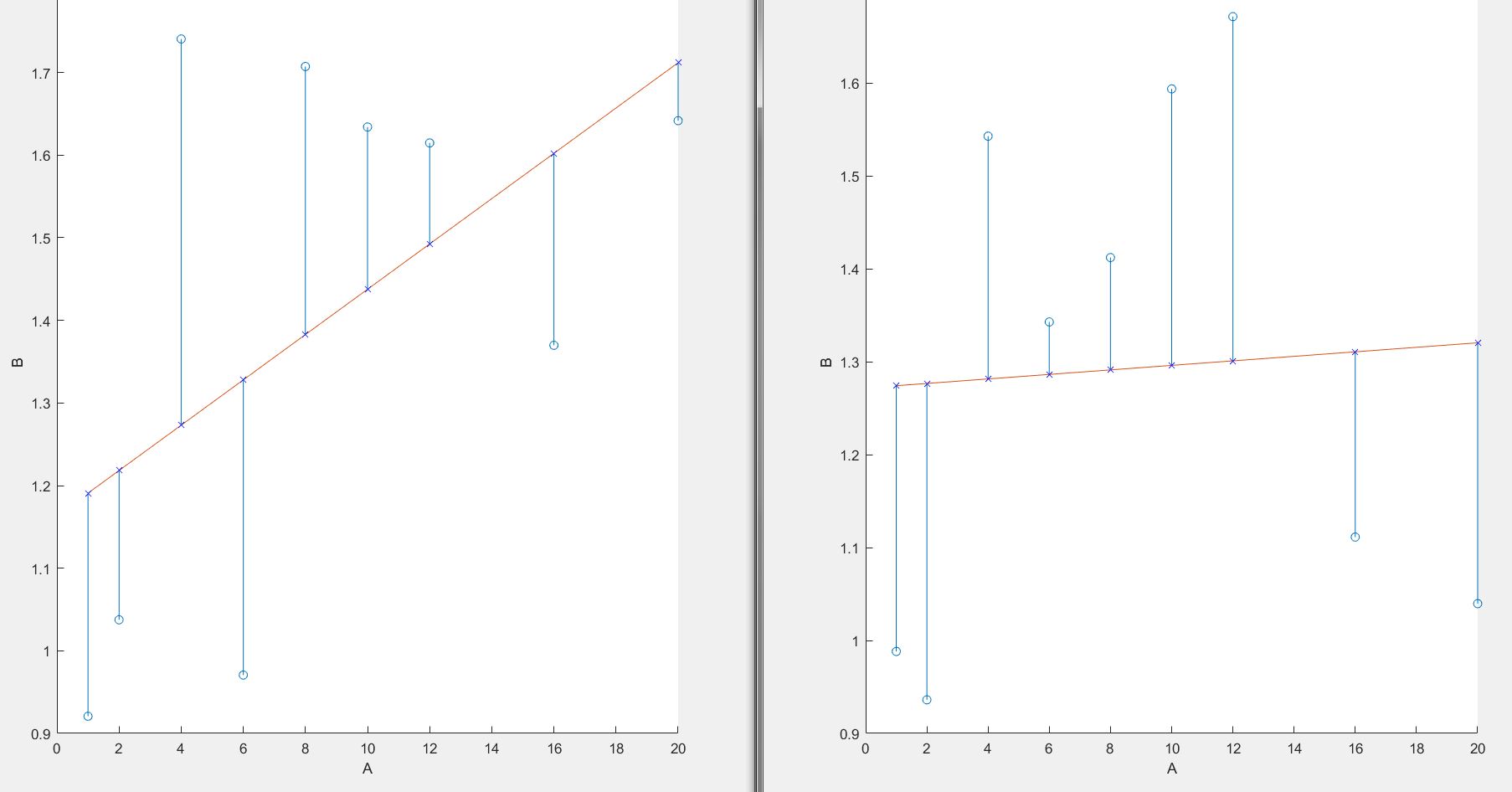For my empirical experiment, I have analyzed the behavior between two variables. My one-sided hypothesis is "Increase variable A, then will variable B also increase." Now, I want to do a statistical test to confirm my hypothesis.
I have plotted the two variables. Below are some plots of my results. The blue circles are the measured data, and the orange line is the plotted linear regression.

I do a regression over the data, but it seems to be non-linear. Which test do I have to do now to test my hypothesis?
